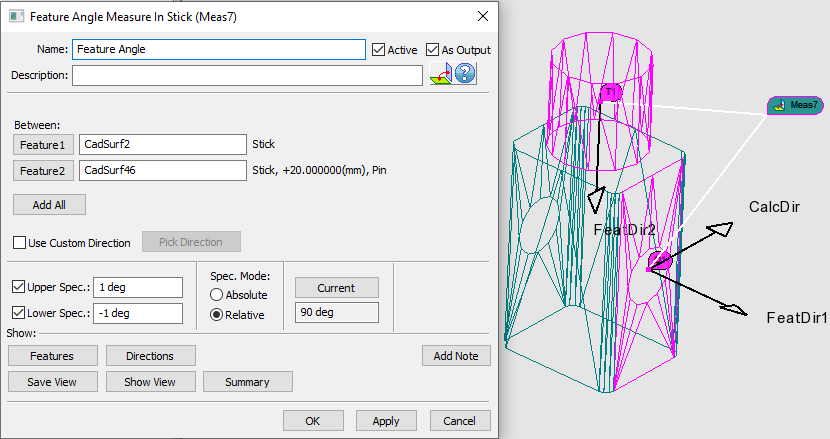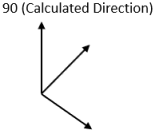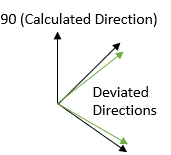The
|
Inputs:
Measure Type: Feature Angle - measurement between two features, reporting degrees.
Geometry Requirement: CAD Surfaces (Planes/Cylinders/Slots or Tabs. Add one feature for each side of the angle to be measured.
Direction Type: Auto (Default), calculated as the cross product of the two features' vectors following the right-hand rule, or Custom Direction (set by the user).
Spec Limits: Recommended, expressed in degrees.

How to define a Feature Angle measure:
1.Pick the feature for Feature 1. (Or select [Add All] to select both features).
2.Pick the feature for Feature 2.
3.Specify the Upper and Lower Spec Limits.
4.Specify the Spec Limit. Relative is set to default.
5.Check the current value of the measure: Use ![]() Nominal Build to update the measure Current value. Users can also use
Nominal Build to update the measure Current value. Users can also use ![]() Deviate to see the deviation caused by tolerances in the Current value.
Deviate to see the deviation caused by tolerances in the Current value.
6.Optional: activate the Custom Direction option and pick the [Pick Direction] button.
Cases and Best Practices:
Rules: Cross Product direction calculation. (70614)
If 90° > Nominal (after Offset) > -90° Then use +180°/-180°
If 270° > Nominal (after Offset) > 90° Then use +360°/0°
Example of Nominal Direction |
Example of deviation direction and the Calculated Direction |
|
|
Notes:For best results, users can apply
|

